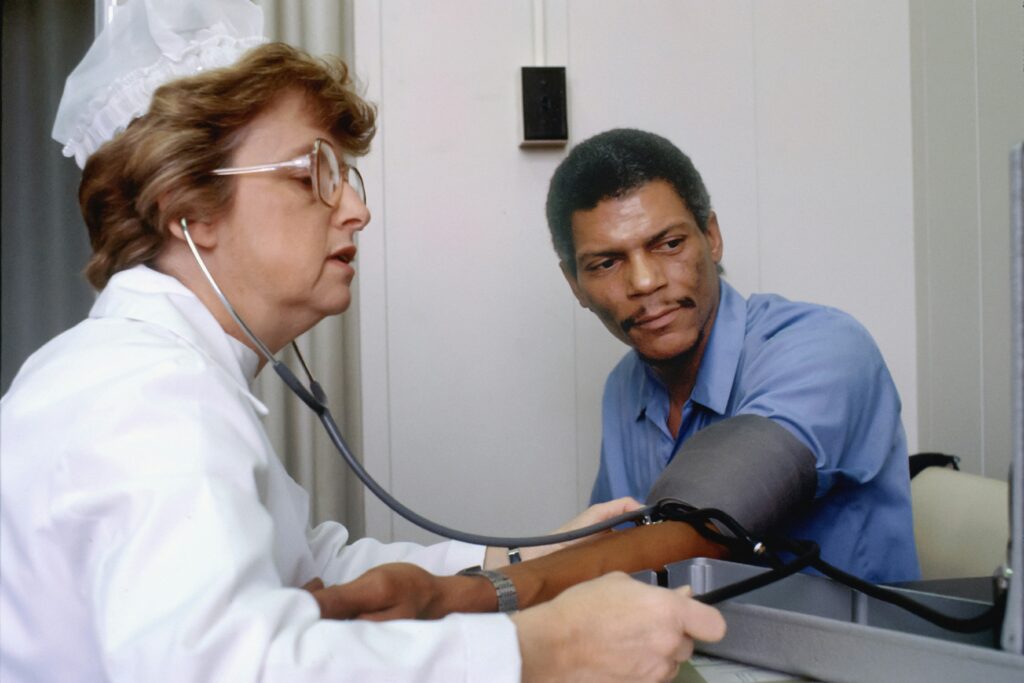Top Nursing Schools in California Compared

Choosing the right nursing school in California is a crucial step in your journey to a rewarding career in healthcare. California is home to numerous prestigious institutions that offer a variety of nursing programs. This guide provides detailed information on the top nursing schools in California, including statistics, programs, demographics, and tips on how to select the right school.
University of California, San Francisco (UCSF)
Location: San Francisco, CA
Tuition: $13,470 (in-state), $25,715 (out-of-state) per year (Master’s)
Enrollment: 274 (Master’s)UCSF is renowned for its graduate nursing programs and is consistently ranked among the top nursing schools in the nation. The school offers a variety of advanced practice nursing specialties, including Nurse Practitioner, Clinical Nurse Specialist, and Nurse Anesthesia.
University of California, Los Angeles (UCLA)
Location: Los Angeles, CA
Tuition: $27,361 (in-state), $39,606 (out-of-state) per year (Master’s)
Enrollment: 275 (Master’s)UCLA School of Nursing offers comprehensive programs at the bachelor’s, master’s, and doctoral levels. The school is known for its research initiatives and community health programs.
University of California, Davis (UC Davis)
Location: Sacramento, CA
Tuition: $84,264 per year (Master’s)
Enrollment: 89 (Master’s)UC Davis offers a range of nursing programs, including a Master’s Entry Program in Nursing (MEPN) for students with non-nursing bachelor’s degrees. The school emphasizes interprofessional education and rural health.
University of San Diego (Hahn School of Nursing)
Location: San Diego, CA
Tuition: $1,690 per credit (Master’s)
Enrollment: 106 (Master’s)The Hahn School of Nursing and Health Science offers a variety of programs, including a Doctor of Nursing Practice (DNP) and PhD in Nursing. The school focuses on leadership and advanced practice roles.
California State University, Los Angeles (CSULA)
Location: Los Angeles, CA
Tuition: $8,214 (in-state), $16,530 (out-of-state) per year (Master’s)
Enrollment: 118 (Master’s)CSULA offers both undergraduate and graduate nursing programs, including an accelerated BSN program for students who already hold a bachelor’s degree in another field.
University of California, Irvine (UC Irvine)
Location: Irvine, CA
Tuition: $72,054 per year (Master’s)
Enrollment: 60 (Master’s)UC Irvine’s Sue & Bill Gross School of Nursing offers innovative programs that prepare students for leadership roles in healthcare. The school is known for its research in health disparities and community health.
California State University, Fullerton (CSUF)
Location: Fullerton, CA
Tuition: $3,539 per semester (undergraduate, in-state)
Enrollment: Diverse and culturally rich student bodyCSUF offers a range of nursing programs, including BSN, MSN, and DNP. The school is committed to affordability and academic excellence.
San Diego State University (SDSU)
Location: San Diego, CA
Tuition: $5,742 (in-state), $17,622 (out-of-state) per year
Enrollment: 36,334 (total students)SDSU’s School of Nursing offers BSN, MSN, and DNP programs. The school emphasizes community health and clinical practice.
Point Loma Nazarene University
Location: San Diego, CA
Tuition: $37,600 per year
Enrollment: 4,616Point Loma Nazarene University offers BSN and MSN programs with a focus on holistic nursing and community service.
California State University, Fresno (CSU Fresno)
Location: Fresno, CA
Tuition: $6,587 per year (in-state)
Enrollment: 25,000 (total students)CSU Fresno offers BSN, MSN, and DNP programs. The school is known for its strong community partnerships and rural health initiatives.
Loma Linda University
Location: Loma Linda, CA
Tuition: $102,120 (total program)
Enrollment: 168Loma Linda University offers a variety of nursing programs, including BSN, MSN, and DNP. The school emphasizes whole-person care and spiritual growth.
Mount Saint Mary’s University
Location: Los Angeles, CA
Tuition: $186,960 (total program)
Enrollment: 178Mount Saint Mary’s University offers BSN and MSN programs with a focus on leadership and clinical excellence.
National University
Location: San Diego, CA
Tuition: $67,561 (total program)
Enrollment: 112National University offers accelerated BSN and MSN programs designed for working adults. The school emphasizes flexibility and online learning options.
California State University, Long Beach (CSULB)
Location: Long Beach, CA
Tuition: $6,846 per year (in-state)
Enrollment: 37,000 (total students)CSULB offers BSN, MSN, and DNP programs. The school is known for its strong clinical partnerships and high NCLEX pass rates.
University of San Francisco (USF)
Location: San Francisco, CA
Tuition: $50,282 per year
Enrollment: 10,000 (total students)USF offers BSN, MSN, and DNP programs with a focus on social justice and community health.

Factors Contributing to High NCLEX Pass Rates in Nursing Programs
The National Council Licensure Examination (NCLEX) is a critical milestone for nursing graduates, determining their readiness to practice as registered nurses. High pass rates on the NCLEX are often indicative of a nursing program’s quality. Understanding the factors that contribute to these high pass rates can help prospective students choose the right program and guide nursing schools in improving their outcomes.
Academic Preparation and Rigor
Strong Academic Foundation
- GPA and Course Performance: Students’ performance in pre-nursing courses, particularly in science subjects like Biology, Anatomy, Physiology, and Chemistry, is a strong predictor of NCLEX success. Higher GPAs in these courses correlate with better NCLEX outcomes.
- Selective Admissions: Programs that implement selective admissions criteria, such as higher SAT/ACT scores or pre-nursing test scores, tend to have higher NCLEX pass rates. This selectivity ensures that students are well-prepared academically before entering the rigorous nursing curriculum.
Rigorous Nursing Curriculum
- Challenging Coursework: Nursing programs that maintain high academic standards and offer challenging coursework help prepare students for the complexities of the NCLEX. Courses that emphasize critical thinking and clinical judgment are particularly beneficial.
- Standardized Exams: Incorporating standardized exams throughout the nursing program can help students become familiar with the format and content of the NCLEX, thereby improving pass rates.
Faculty and Institutional Support
Experienced and Full-Time Faculty
- Faculty Composition: Programs with a higher percentage of full-time faculty members tend to have higher NCLEX pass rates. Full-time faculty are more likely to be involved in curriculum development, student mentoring, and maintaining academic standards.
- Faculty Expertise: Faculty members who are well-versed in the current NCLEX test plan and who continuously update their knowledge and teaching methods contribute significantly to student success.
Student Support Services
- Tutoring and Remediation: Providing robust tutoring services and remediation programs for students who struggle academically can help improve NCLEX pass rates. These services ensure that all students receive the support they need to succeed.
- NCLEX Preparation Courses: Many nursing programs offer or require NCLEX preparation courses. These courses provide focused review sessions and practice exams that help students prepare effectively for the NCLEX.
Clinical Experience and Resources
Comprehensive Clinical Rotations
- Diverse Clinical Experiences: Exposure to a variety of clinical settings and patient populations helps students develop the clinical skills and judgment necessary for the NCLEX. Programs that offer extensive and diverse clinical rotations tend to have higher pass rates.
- Simulation Labs: The use of high-fidelity simulation labs allows students to practice and refine their clinical skills in a controlled environment. These simulations can mimic real-life scenarios, enhancing students’ readiness for the NCLEX.
Institutional Characteristics
Public vs. Private Institutions
- Public Schools: Research indicates that public nursing schools often have higher NCLEX pass rates compared to private schools. This may be due to better funding, more resources, and larger faculty-to-student ratios.
Continuous Improvement Plans
- Program Evaluation: Nursing programs that regularly assess and update their curricula based on student performance and feedback tend to see improvements in NCLEX pass rates. Continuous improvement plans that address weaknesses and build on strengths are essential for maintaining high standards.
Summary of Key Factors
| Factor | Description |
|---|---|
| Academic Preparation | High GPA in science courses, selective admissions criteria |
| Rigorous Curriculum | Challenging coursework, use of standardized exams |
| Experienced Faculty | Higher percentage of full-time faculty, faculty expertise in NCLEX content |
| Student Support Services | Tutoring, remediation, NCLEX prep courses |
| Comprehensive Clinical Rotations | Diverse clinical experiences, use of simulation labs |
| Institutional Characteristics | Public schools, continuous improvement plans |
High NCLEX pass rates are a result of multiple factors, including strong academic preparation, rigorous curricula, experienced faculty, comprehensive clinical experiences, and robust student support services. Prospective nursing students should consider these factors when choosing a nursing program to ensure they receive the best possible education and preparation for the NCLEX. Nursing programs, in turn, should continuously evaluate and improve their offerings to maintain high standards and support student success.
The Role of Standardized Exams in Nursing Program Admissions
Standardized exams play a crucial role in the admissions process for nursing programs. These exams, such as the HESI (Health Education Systems Inc.) and TEAS (Test of Essential Academic Skills), serve multiple purposes that help both applicants and institutions ensure a good fit and predict future success. Below, we explore the key roles these exams play in nursing program admissions.
1. Objective Assessment of Academic Readiness
Standardized exams provide a uniform measure of applicants’ academic abilities. This allows nursing programs to compare candidates on a level playing field, regardless of their educational backgrounds.
- HESI and TEAS: These exams assess knowledge in areas such as math, science, reading, and English. For example, the HESI covers a broader range of topics, making it a comprehensive tool for evaluating readiness for nursing school.
- NEX (Nursing Entrance Exam): Used by institutions like Hunter College, the NEX evaluates verbal, math, and science skills, ensuring that applicants have the foundational knowledge required for nursing education.
2. Predicting Academic Success and NCLEX Performance
Standardized exams are designed to predict students’ success in nursing programs and their likelihood of passing the NCLEX (National Council Licensure Examination).
- Correlation with NCLEX Success: Studies have shown that performance on entrance exams like the HESI and TEAS is correlated with success on the NCLEX. This predictive capability helps schools maintain high pass rates, which is crucial for their reputation and accreditation.
- Identifying Weak Areas: These exams help identify areas where students may need additional support, allowing schools to provide targeted remediation and resources to improve student outcomes.
3. Enhancing Selectivity and Competitiveness
Standardized exams contribute to the selectivity of nursing programs, ensuring that only the most prepared and capable students are admitted.
- Competitive Edge: High scores on standardized exams can give applicants a competitive edge in the admissions process, especially in programs with limited spots and high demand.
- Selective Admissions: Top-ranked nursing schools often use these exams as a key criterion in their selective admissions processes, ensuring that admitted students are well-prepared for the rigors of nursing education.
4. Complementing Other Admissions Criteria
While standardized exams are important, they are typically used in conjunction with other admissions criteria to provide a holistic view of applicants.
- Holistic Admissions: Nursing programs often consider a combination of standardized test scores, GPA, personal statements, recommendation letters, and interviews to assess both cognitive and non-cognitive abilities.
- Balanced Evaluation: This comprehensive approach helps schools select students who are not only academically capable but also possess the interpersonal skills and ethical insights necessary for a successful nursing career.
5. Meeting Accreditation Requirements
The use of standardized exams helps nursing programs meet accreditation requirements set by state boards and accrediting bodies.
- Accreditation Standards: Nursing programs must demonstrate that they are admitting students who are likely to succeed and pass the NCLEX. Standardized exams provide a reliable metric to satisfy these requirements.
- Continuous Improvement: Regular use of standardized exams allows programs to continuously evaluate and improve their admissions processes, ensuring they maintain high standards and accreditation status.

Roles of Standardized Exams in Nursing Admissions
| Role | Description |
|---|---|
| Objective Assessment | Provides a uniform measure of academic abilities across all applicants |
| Predicting Success | Correlates with academic success and NCLEX performance |
| Enhancing Selectivity | Contributes to the competitiveness of admissions, ensuring well-prepared students |
| Complementing Criteria | Used alongside GPA, personal statements, and interviews for a holistic view of applicants |
| Meeting Accreditation | Helps programs meet state and accrediting body requirements |
Standardized exams like the HESI, TEAS, and NEX play a pivotal role in nursing program admissions by providing objective assessments of academic readiness, predicting future success, enhancing selectivity, complementing other admissions criteria, and helping programs meet accreditation requirements. For prospective nursing students, performing well on these exams can significantly enhance their chances of admission and success in their nursing careers.
Nursing Schools That Do Not Require Standardized Exams for Admission
Several nursing schools in the United States, including those in California, have adopted a holistic admissions approach and do not require standardized entrance exams like the TEAS or HESI. Here are some notable nursing schools that have eliminated these exam requirements:
1. California State University, Fullerton (CSUF)
- Programs Offered: Traditional BSN, Transfer BSN, Accelerated BSN, RN-to-BSN
- Admission Requirements: Official transcripts, essay, letters of recommendation, faculty interview
- Accreditation: Commission on Collegiate Nursing Education (CCNE)
- Program Length: 2-4 years
2. University of San Francisco (USF)
- Programs Offered: BSN, MSN, DNP
- Admission Requirements: GPA, prerequisite courses, essays, letters of recommendation
- Accreditation: CCNE
3. Oregon Health & Science University (OHSU)
- Programs Offered: Traditional BSN, Accelerated BSN, Graduate Programs
- Admission Requirements: GPA, prerequisite courses, essays, letters of recommendation
- Accreditation: CCNE
4. Northern Illinois University
- Programs Offered: BSN, RN-to-BSN, MSN, DNP
- Admission Requirements: GPA, prerequisite courses, essays, letters of recommendation
- Accreditation: CCNE
5. Drexel University
- Programs Offered: BSN, Accelerated BSN, MSN
- Admission Requirements: Essay, letters of recommendation
- Accreditation: CCNE
These schools focus on alternative criteria such as GPA, prerequisite coursework, personal essays, recommendation letters, and interviews to evaluate applicants. This approach aims to assess a candidate’s overall potential and readiness for a nursing career without the stress of standardized testing.
Online Nursing Programs That Don’t Require Entrance Exams
Online nursing programs do not require entrance exams such as the TEAS or HESI for admission. These programs often focus on other criteria such as GPA, prerequisite coursework, and personal statements. Here are some notable online nursing programs that do not require entrance exams:
Western Governors University (WGU)
- Programs Offered: RN-to-BSN, MSN
- Accreditation: Commission on Collegiate Nursing Education (CCNE)
- Admission Requirements: Active RN license, transcripts, and a minimum GPA
Drexel University
- Programs Offered: RN-to-BSN, MSN
- Accreditation: CCNE
- Admission Requirements: Active RN license, transcripts, personal statement
University of South Florida (USF)
- Programs Offered: RN-to-BSN
- Accreditation: CCNE
- Admission Requirements: Active RN license, completion of prerequisite courses, minimum GPA
University of Arkansas
- Programs Offered: RN-to-BSN
- Accreditation: CCNE
- Admission Requirements: Active RN license, transcripts, completion of prerequisite courses
These programs are designed to provide flexibility for working nurses and emphasize a holistic admissions process, focusing on academic performance, professional experience, and personal qualities rather than standardized test scores.
How to Select the Right Nursing School
Choosing the right nursing school involves several key considerations:
Accreditation
Ensure the school is accredited by recognized bodies such as the Commission on Collegiate Nursing Education (CCNE) or the Accreditation Commission for Education in Nursing (ACEN).
Program Offerings
Consider the types of programs offered (BSN, MSN, DNP) and whether they align with your career goals.
NCLEX Pass Rates
Look for schools with high first-time NCLEX pass rates, as this is a strong indicator of program quality.
Clinical Rotations
Evaluate the clinical rotation opportunities and partnerships with local healthcare facilities.
Costs and Financial Aid
Assess the overall costs of the program and explore available financial aid options. Consider tuition, fees, and potential additional expenses.
Location
Consider the school’s location and its proximity to potential clinical sites and job opportunities.
Class Size and Faculty
Smaller class sizes and experienced faculty can enhance your learning experience.
Student Support Services
Look for schools that offer robust student support services, including tutoring, career counseling, and mental health resources. By considering these factors, you can find a nursing program that best fits your needs and sets you on the path to a successful career in nursing.
Related Posts:
Nursing at La Mission College: A Comprehensive Guide
Los Angeles County Nursing School: Pioneers in Nursing Education
 Monica developed the SMART method of applying for scholarships to help her son.
Monica developed the SMART method of applying for scholarships to help her son.
Leave a Reply